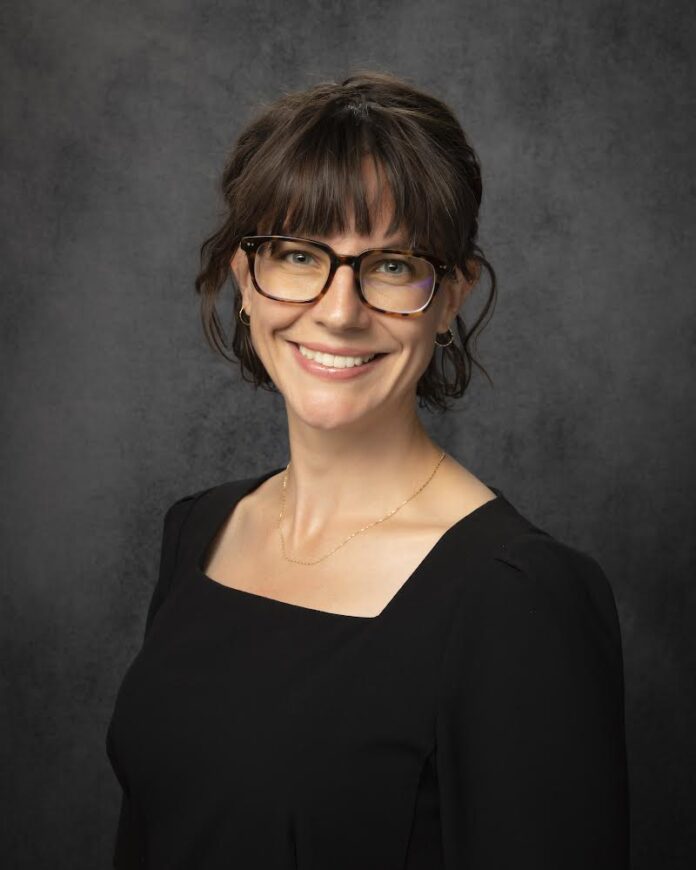
It takes a special kind of person to be a teacher. A teacher not only shares their expert knowledge about their field, but they also support students in all their endeavors and nurture their gifts. When I think of this idea of a teacher, I think of Dr. Christi Ivers.
When I peeked into her office in Anselm through the slightly open door, I was greeted with an enthusiastic “Hola!” and a wide smile from behind a laptop.
For those who have never had the privilege of encountering Ivers around campus, she is an Assistant Professor of Spanish in the Modern Languages department, and a Medieval and Renaissance specialist.
Ivers knew since childhood that she wanted to be a teacher, which led her to Drake University to study theater. However, something in her thought about changing her major.
“I was walking down campus one day, like their equivalent of the mall, and I was just like, ‘Man, if only I could teach Spanish. I feel like that would be the best life ever,’ Ivers said.
This major switch led Ivers to teach Spanish at a Catholic high school in her hometown of Kansas City, Missouri for a few years until she pursued graduate studies at the University of Kansas where she became interested in Medieval and Renaissance literature. She became fascinated with the idea of how books connect people across time and space.
She considers all of her studies and the decisions that she made in her academic life as divine providence that led her to UD.
“When I look back over my life, it just seems like step by step – like everything that happened in my life, God was preparing me to be right where I am. […] As a person who studies 15th and 16th century Europe, Catholicism is so central to everything that’s going on, and it’s really cool to be able to appeal to that in the classroom,” Ivers said.
When she applied for a job at UD, she was immediately captivated by the students, the unique sense of community and the love of the Great Books.
“That’s the best thing, the way that you can just sit down and have a fun, smart, profound conversation with anybody. I think that we all like that we have a common goal, and that’s not always true in every university or in every workplace,” Ivers said.
In addition to assuming the traditional professor role of lectures and sharing expertise, Ivers also sees her job as a collaborative effort with students – whether they intend on studying Spanish, another modern language or any other interest.
“I think that it’s important [to see the world] through different perspectives, and I also think that collaboration in learning is important. I would want for [students] to feel like they can bring some of themselves into the classroom because everybody has expertise. They may not be fantastic at Spanish, but everyone is good at something, and I think that there’s room for all of that in the classroom,” Ivers said.
For Ivers, the students are the most important part of her job as she learns the most from them. She also loves supporting her students through what they love and what they think is important – whether that’s theater productions, sports games or other campus activities. She herself has enjoyed a myriad of different experiences and hobbies throughout her life. This was made evident to me through our conversation as we discussed everything from her interest in the theater arts to her study abroad experience in Grenada, Spain, her proficiency in the harp that she’s been playing since the first grade and her love of mystery novels.
Some of her favorite memories from her five years at UD were the professor panel on sonnets, the multilingual poetry nights and her first Charity Week. She recounted the experience of her first Charity Week through laughs.
“Dr. Norris gave the new faculty a crash course on Charity Week and Groundhog… but that didn’t even come close. [Dr.] Janet Hendrickson and I came in at the same time, and we were in jail together when it was raining!,” she said.
Lastly, her advice for students is to learn to be okay with not understanding everything that you’re learning and to spread kindness in our especially polarizing environment.
“Smile at people, introduce yourself to people that you don’t ordinarily hang out with, go to events that you wouldn’t ordinarily go to and see what becomes of that because our campus is so rich – it’s a lot less homogeneous than people think it is sometimes,” Ivers said.